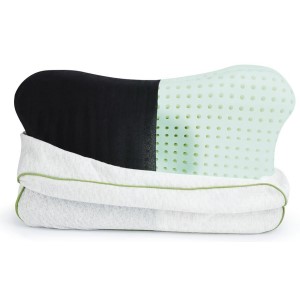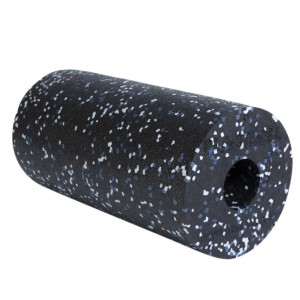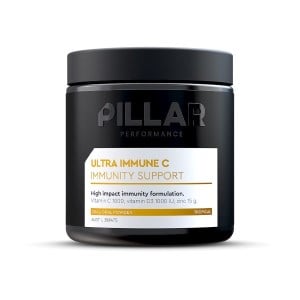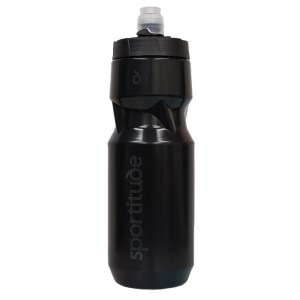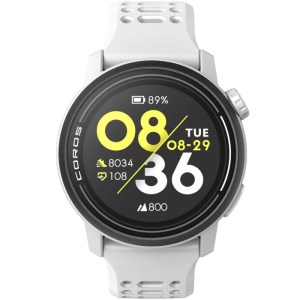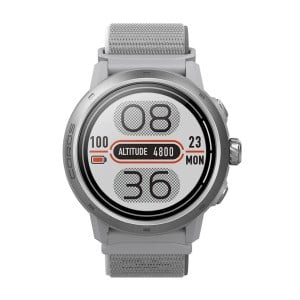Are You Overtraining? 9 Warning Signs & How To Recover
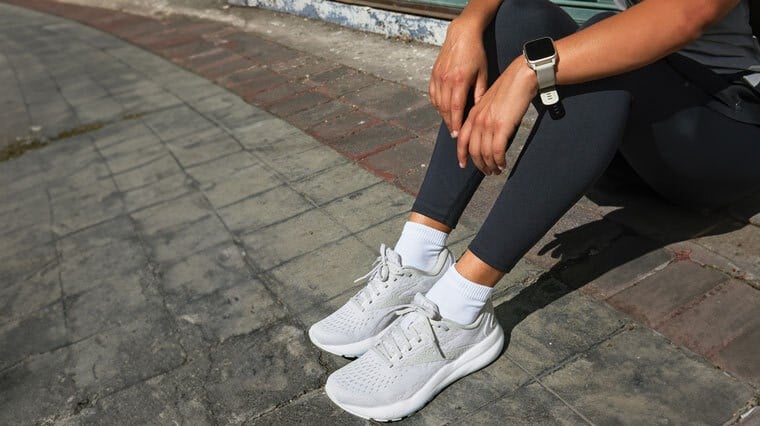
Does running feel like a chore when you used to love it?
Whether you’ve hit the proverbial wall or have lost motivation for your running workouts, you could be overtraining to the detriment of your physical health and mental wellbeing.
Overtraining isn't a condition reserved for elite athletes. Anyone that trains hard without a focus on recovery is at risk - whether you're a beginner runner pushing through the pain, or a seasoned marathoner neglecting to take rest days.
Overtraining isn't only bad for your body; it can be a burden on your mind as your stress levels are put into overdrive. Your body and emotions may be trying to tell you that you're burnt out from excessive physical stress, but it can be easy to miss or mistaken the symptoms for something else. In this blog, you'll discover the key warning signs of overtraining and practical solutions to recover.
Although there is no cookie-cutter approach to running as every runner is unique, you'll find out why frequently less is more in terms of training intensity and volume in your running plan. A shift from a training focus to a recovery focus can improve performance in both your speed and endurance - from increased muscle growth to cardio fitness.
You'll also receive guidance on how to find balance in your training, and discover the intricacies of not just how to recover faster, but more effectively.
What Is Overtraining?
Overtraining, also referred to as overtraining syndrome (OTS) is a combination of overexerting yourself, and failure to recover adequately. In the case of training, more isn't always better. In fact, overtraining can hinder your performance and increase your risk of injury.
Balance between training and recovery is key to prevent your progress from plateauing - giving your mind and muscles the opportunity to rest, strengthen and rejuvenate.
Chronic under-fuelling also puts you at risk of overtraining syndrome - when you neglect to give your body the nutrition required to support its training load and its ability to recover.
Overtraining & Cortisol

Overtraining and increased cortisol levels go hand in hand. Cortisol, commonly referred to as the 'stress hormone' is released by your adrenal glands in times of stress - whether mental, like going for a job interview, or physical, like strenuous exercise.
Stress gets a bad rap, but it isn't inherently negative. In some cases it can even be motivational, helping you meet deadlines or perform your best race.
Stress is a natural biological and psychological response to threatening or high-pressure situations, stemming from the days of your ancestors when 'fight or flight' was a case of survival. Cortisol causes your heart rate to accelerate, increasing the transport of oxygen-rich blood to your muscles and delivering an essential burst of energy when urgent.
Acute, short-term stress can heighten your immune system function, triggering an anti-inflammatory response in anticipation of injury. However, chronic stress - such as that induced by overtraining - can impair your immune system function, slow down recovery and inhibit your progress as a runner.
Regular walking or running at light to moderate intensity can help reduce the production of cortisol, cultivating a positive mindset and boosting your mood.
Running at a moderate to high-intensity pace may increase your cortisol production in the short-term, but is quickly followed by a decline in cortisol during the hours immediately post-run. This can build your resilience to increased stress in the long-term, which can make your day-to-day challenges feel more manageable mentally.
However, when high-intensity runs aren't paired with adequate recovery, and your muscles and heart struggle to tolerate the consistent or accumulating level of physical pressure they're under, your cortisol levels can remain elevated.
Especially when accompanied with a busy lifestyle including work, social and family commitments, it's understandable that stress levels that were once manageable may become heightened to the point of exhaustion and irritability when overtraining.
There is an overlap in how your body responds to physiological stress and psychological stress - with both putting your cortisol production into overdrive when experienced chronically, and being accompanied by physical or emotional tension.
Enduring heightened levels of cortisol for an extended period has multiple consequences to your health - impairing your cardiovascular, respiratory and reproductive systems. It can put you at increased risk of physical issues such as muscle breakdown, bone loss, high blood pressure and weight gain, and mental illness such as anxiety and depression.
However, there is hope to reverse the negative toll of stress on your body and mind. Alongside lifestyle changes that prioritise your self-care, knowing when to pull back on your training to ensure balance in your running routine is key.
Training hard without overtraining is possible even for elite athletes if you prioritise recovery - which includes gaining quality sleep, quality nutrition and caring for your mind and muscles. Consider the following overtraining signs and effective solutions to get back on track of your running or fitness journey.
1. You’re Tired But Can’t Sleep
Will overtraining cause insomnia?
If you're wondering whether you are overtraining or just tired, know that it's normal to be tired after a long or high-intensity run. However, if you're struggling to shake off this fatigue in the days following, overtraining may be a factor.
If you’re exhausted, you’re going to sleep well, right? Think again. Tiring yourself out to the point of exhaustion by performing vigorous activity at a heavy volume, like increasing your training load too quickly, may have the opposite effect, leaving you overstimulated and consequently sleep deprived.
This can lead to insomnia, a potentially debilitating yet common sleep disorder that can result in difficulty falling and staying asleep at night. Sleep is fundamental in recovery, with insomnia negativing affecting your mood and muscle repair.
Inadequate or poor quality sleep may be accompanied by lack of concentration and low energy. It can be a challenging cycle to break, with your worries regarding your lack of sleep, triggering more restless nights.
Chronic stress from elevated cortisol and epinephrine (adrenaline) levels as a result of high-intensity exercise without adequate recovery can leave you feeling wound up and overwhelmed, interfering with your ability to gain quality shut-eye. If you’re desperately counting sheep, consider the following solution.
Solution: Improve your sleep hygiene

‘Sleep hygiene’ refers to the positive habits that can support quality sleep – everything from your behaviour and activity levels (e.g. not using your phone in bed, limiting caffeine), to your environment (e.g. exposure to sound, light and temperature).
Quality sleep is fundamental to allow you to mentally and physically break the overtraining cycle. Helping ease your body into a relaxed state prior to sleep through gentle stretches like yoga or foam rolling before bed, can help alleviate tension in both mind and muscles and put spiralling thoughts to rest.
These meditative activities can also act as positive sleep cues to help you fall asleep more naturally, without trying to force it and add pressure.
Check out the following blogs below for guidance on gaining a healthy night’s sleep:
-
Blackroll Ergonomic Memory Foam Recovery Pillow
-
Blackroll Standard Foam Roller - Medium
-
Blackroll Blackbox Set - Foam Roller & Massage Ball Set
2. You’re Getting Beat Up By The Common Cold
Can overtraining make you sick?
Running regularly for about 1 hour at a moderate pace or less boosts your immune system. When your training and recovery is in balance, running increases your disease-fighting white blood cells (leukocytes) and helps alleviate stress.
However, during endurance training (over 1.5 hours) and high-intensity activity, your body reallocates its energy to prioritise physical movement. This results in your immune system function temporarily weakening, resulting in a decline of white blood cells.
This provides a window of opportunity (up to 72 hours post-workout) for viruses to invade, leaving you susceptible to upper respiratory tract infections like the common cold and other illnesses. It's a potential reason why sickness often strikes athletes following vigorous training or racing in half marathon, marathon or ultramarathon events.
Solution: Boost your vitamin C
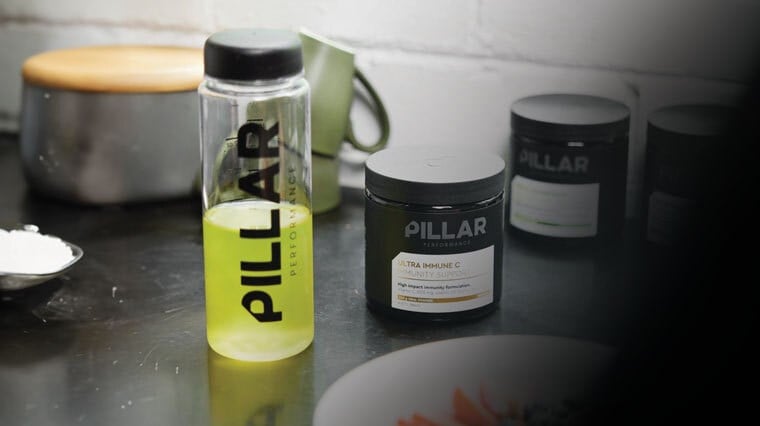
If you’re training for an event like a half marathon, marathon or ultramarathon, you may benefit from including more foods that are abundant in vitamin C into your diet. Alongside boosting your immune system function, vitamin C is an antioxidant that can support the repair and growth of tissues, and helps maintain the health of your skin and bones. It is essential for not only every runner, but every body.
Bountiful sources of vitamin C include red capsicum, citrus fruits such as oranges and grapefruit, strawberries, kiwifruit, blackcurrents, broccoli, brussel sprouts, cauliflower and potatoes. However, particularly as a training athlete, it can be challenging to include adequate vitamin C in your nutrition.
Pillar Performance specialises in research-based supplements to support your running and performance goals. The Pillar Ultra Immune C Training Advantage powder is formulated to help navigate the challenges of overtraining, helping you boost the vitamin C in your diet to increase your immune system health. It also may help reduce the durability and severity of common cold symptoms.
3. You're Experiencing Mood Swings
Can overtraining cause anxiety?
Running at a moderate intensity for a moderate duration (at least 30 minutes, but potentially as long as 1-2 hours), at approximately 70 – 85% of your max heart rate, may reward you with the rare joy of a ‘runner’s high’.
Traditionally, the euphoria or calm of a runner’s high was attributed solely to endorphins – the feel-good hormones released by your body, triggered by pain or stress. Endorphins function as natural pain relief and mood-boosters, but recent research suggests its endocannabinoids, that are capable of travelling through the blood-brain barrier, that are responsible for the elated sensation of a runner’s high.
Whether or not you experience a runner’s high, running can reduce the stress hormone cortisol, making you feel lighter mentally – whether it’s due to the movement itself, or the emotional rewards of running. However, it can also increase cortisol as the physical demands on your body rise, particularly during moderate to high-intensity efforts.
When paired with adequate recovery, even an acute, short-term surge of cortisol is not the enemy and can in fact be beneficial – allowing you to adapt to a greater stress load and develop resilience.
However, if your running sessions are leaving you feeling angry, anxious, agitated or depressed in the days following, you may have a hormone imbalance from excessive cortisol and epinephrine (adrenaline). Overtraining, chronic under-fuelling or neglecting to properly recover could be to blame.
Solution: Lower the intensity & reconnect with why you love running
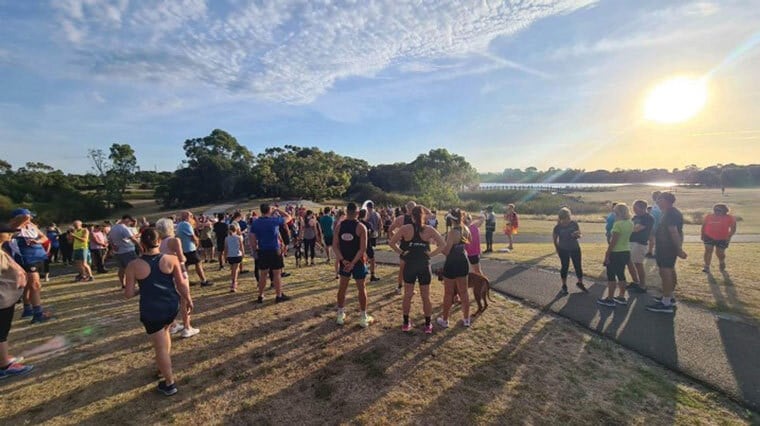
Free yourself from the all-or-nothing mentality. Trade some of your high-intensity or endurance runs for light to moderate exercises like walking, gentle jogging or yoga. If you choose to run, keep it to a conversational pace to avoid burning out. From increased fat burn to stress relief, slow running has its own unique benefits, so don't feel like you're losing out for taking the intensity down a notch.
Try parkrun – an obligation-free, weekly 5K event that welcomes walkers, joggers and runners of all ages and abilities. It has literally helped millions of runners across the globe stay committed to their running journey, without the pressure of competition.
If you’re looking to reduce your weekly mileage until you’ve fully recovered, consider volunteering at parkrun. Whether participating or volunteering, you’ll feel mentally rejuvenated among this positive and supportive running community.
Check out some of the top parkruns across Australia to inspire you:
- The Top 5 Sydney Parkruns
- The Top 5 Gold Coast Parkruns
- The Top 5 Brisbane Parkruns
- The Top 5 Adelaide Parkruns
- The Top 5 Melbourne Parkruns
- Discover Australia's Most Scenic Parkruns
4. Your Appetite Has Changed
Can overtraining cause weight gain & muscle loss?
Running can be an effective activity in your weight loss journey, however overtraining can cause your results to plateau or take a step back. Overtraining results in a hormone imbalance, and particularly, the stress hormone cortisol can go into overdrive. This can result in an increase in appetite, especially cravings for carb-dense, sweet or salty foods that are typically low in nutrients, making it challenging to achieve a calorie deficit.
At the extreme end of overtraining, elevated cortisol levels also may lead to insulin resistance, which in turn promotes fat storage. Essentially, overtraining and under fuelling can interfere with metabolic function – so your body will go into ‘survival mode’ or ‘storage mode’.
Overtraining can affect people in different ways and on the flip side of increasing appetite, it can also result in appetite loss. This can also be a response to hormone imbalances, with stress resulting in the release of epinephrine (adrenaline) and norepinephrine which are naturally appetite-suppressing.
Overtraining and under-fuelling may also result in emotional shifts or behavioural changes that stem from lack of motivation, fatigue and anxiety, that can also result in appetite loss. This can put you at risk of inadequate nutrition and conditions such as anaemia as a result of iron deficiency.
Solution: Enjoy healthy sports nutrition & seek the advice of your doctor

Your mind and muscles need a nutrient-dense diet to support recovery – from refuelling with wholegrain carbohydrates to supporting muscle repair and growth with lean protein. A balanced diet that includes a vibrant combination of fruits and vegetables will also help give your body the vitamins and minerals it needs for your overall health and wellbeing.
If you’re on a weight loss journey, it can be challenging to find balance in gaining adequate nutrition to support your training load, while sustainably losing weight. Neglecting to satisfy your body’s nutrition demands by under-fuelling can result in muscle loss, anxiety, low energy and lack of concentration.
Whether experiencing appetite loss or appetite increase, consulting your doctor or nutritionist for personalised advice can help guide you, noting that overtraining may not be the only factor.
Check out Sports Nutrition: Healthy Carbs, Protein & Fats To Improve Performance & Recovery for nutrient-rich food options you can keep in your fridge, freezer and pantry to support your running journey.
5. You’re Always Thirsty
Can overtraining make you dehydrate?
Dehydration and stress have a self-sustaining relationship – one brings about the other in a damaging cycle. If your thirst can't be satisfied by drinking water or an electrolyte sports drink in the case of endurance efforts, overtraining may be the culprit.
The body of an adult is made of 50 - 75% water – providing a vital role in the functioning of your brain, heart, lungs, digestion and muscles. Understandably, when your body is dehydrated, it undergoes significant stress when your organs are deprived of the water they require to operate efficiently – with both physical and emotional symptoms.
However, the relationship between overtraining and dehydration may go deeper than this. Severe overtraining can put your body in a catabolic state (breaking down muscle tissue for fuel instead of fat or carbs) – a naturally dehydrating condition.
On the flip side, stress can trigger dehydration. The physical symptoms of stress such as increased heart rate and heavy breathing, can result in fluid loss. However, this is just the surface of the issue, with stress often resulting in a neglect of self-care, like failure to drink enough water.
Solution: Prioritise your hydration

Restoring your natural fluid balance isn’t a sprint, but a marathon. Rather than drinking large gulps of water post-run to compensate, you should be drinking sips of water regularly throughout the day.
Be aware your water demands increase with physical activity and increased temperature conditions, and have a direct link with your sweat rate. Keeping a drink bottle close and convenient – during your runs, work, travel or at home – goes a long way to acting as a cue to drink up.
Alongside an inability to replenish fluids lost in sweat sufficiently, thirst may be a result of inadequate sodium, which is also lost in sweat. Yes, salt is often associated with making you thirsty, so it may be surprising that inadequate quantities of the electrolyte sodium can result in dehydration.
Sodium is responsible for the transport of water to the cells in your body, alike with potassium and chloride. When exercising over 1.5 hours, consider reaching for an electrolyte drink to ensure your sodium levels are restored to a healthy balance.
For athletes training at an elite level, water or electrolyte sports drinks alone may not be enough to support your performance and recovery. Innovations in sports nutrition with research-based brands like PREPD can help fill the void in your hydration strategy.
PREPD Hydration isn’t just a sports drink, but a hydration enhancer that boosts the fluid absorption of your large intestine. Check out PREPD Hydration: Your Secret Weapon To Improve Performance & Recovery to discover it’s benefits as part of your hydration strategy.
-
Sportitude Thirst Blast BPA Free Lockable Water Bottle 710ml
-
Prepd Prime Pre-Workout Hydration Enhancing Sports Drink - 350ml
-
Prepd Recover Post-Workout Hydration Enhancing Sports Drink - 350ml
6. Your Heart Is Racing Even At Rest
Can overtraining increase your heart rate?
60 – 100 beats per minute (bpm) is considered a normal resting heart rate for most adults. A low resting heart rate suggests that your heart is able to pump oxygen and nutrient-rich blood around your body more efficiently, with professional marathon runners potentially having a resting heart rate of less than 40 beats per minute.
Your resting heart rate acts as your heart’s baseline, and a low resting heart rate can be achieved through exercise. Physical activity like running allows your cardiovascular system to adapt to an increased training load, strengthening your heart and improving your cardiovascular fitness. This means that when your body does transition to a pre-workout state, your heart doesn’t have to work as hard to support essential functions.
Overtraining can feel like the flu, with an elevated resting heart rate a symptom common to both – whether as a response to overexerting yourself, or your immune system fighting off infection, like the common cold.
It’s normal to have slight fluctuations in your resting heart rate day-to-day. However, an accelerated heart rate during rest (about 7 -15 bpm more than your average resting heart rate) can suggest there’s a need to revise your training and recovery strategy. This elevated heart rate may be accompanied by increased blood pressure.
If you lead an active lifestyle, you’re snuggled up for a movie marathon but your heart is racing, this may indicate you’re overdoing your training and/or not recovering properly.
Solution: Know your heart
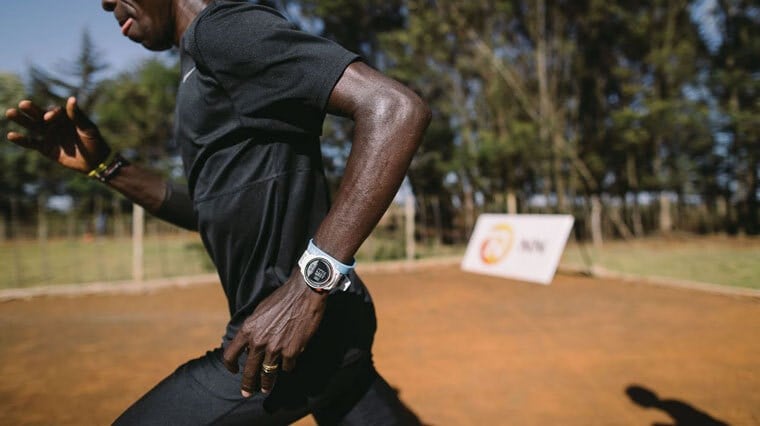
Advanced running watches make it easy to keep track of your resting heart over a period of time, allowing you to detect progress in your cardiovascular fitness as your resting heart rate lowers, or potential signs of overtraining as your resting heart rate increases. This data is incredibly valuable to know your heart better.
Sports watches can act like a personal trainer on your wrist – backed by personalised, real-time data - with many featuring heart rate zones to keep track of your training intensity and to provide guidance on recovery. Many have a HR alarm function to alert you when your heart rate exceeds a specific beats per minute, suggesting when you should wind down the intensity.
Coros sports watches are known for their precise heart rate data, using optical wrist-based heart rate sensors, and can be an essential tool in your running journey – whether you’re a new runner or training for a (half) marathon.
Ideally, check your resting heart rate first thing when you wake up, before getting out of bed and prior to having your morning coffee (as caffeine can accelerate your heart rate). Do this 2-3 days following a high-intensity workout. If your resting heart rate stays significantly elevated over this period, overtraining may be resulting in a long recovery time.
If you discover that over 2-3 weeks that your resting heart rate is steadily climbing, overtraining may also be a factor. Lower your training intensity and duration, and prioritise your recovery in the next week, checking in with how your body feels and if your resting heart rate is stabilising as a result.
There are many factors besides overtraining that can lead to an increased resting heart rate. If you have any concerns, please seek out the advice of your doctor.
-
Coros Pace 3 Premium Multisport GPS Watch With Silicone Band
-
Coros Pace 3 Multisport GPS Watch - Eliud Kipchoge Edition
-
Coros Apex 2 Pro Premium Multi-Sports Watch
7. You’re Having Irregular Or Missing Periods
Can over exercising cause infertility?
Overtraining and/or under-eating may cause the body to relocate its energy away from non-essential functions like reproduction as your body switches to ‘survival mode’. For women, your hypothalamus, an area of the brain responsible for hormone regulation, reduces the release of oestrogen that supports fertility and healthy pregnancy. Without adequate oestrogen, your menstrual cycles can't be regulated efficiently by your body, resulting in irregular periods and potentially fertility related difficulties.
The technical term for a skipped period is amenorrhea, and it occurs naturally as a result of pregnancy, breastfeeding or menopause. Although periods can be inconvenient, amenorrhea experienced for no apparent reason is a health concern that should be addressed.
Amenorrhea onset by overtraining, is commonly linked to having low body weight or low body fat. It is also associated with having a calorie deficit for extended periods – meaning you are not consuming enough nutrients to sustain your body weight or training load, resulting in low energy availability. Our bodies all react to cortisol differently, and in some cases, amenorrhea may also be triggered by heightened stress, resulting in light or absent periods.
Endurance running can be a culprit of amenorrhea, as athletes navigate the challenges of training and recovery, including nutrition.
Solution: Prioritise self-care & seek the advice of your doctor

Typically, a missing period is considered a symptom and not a health condition in itself and is treatable in most cases. It’s generally recommended that you consult your doctor if you have experienced three absent periods in a row (and have crossed out pregnancy as a cause), or earlier if you’re concerned.
Your doctor can help investigate the cause of your amenorrhea, such as through asking related questions about yourself or your family history, or performing blood tests to provide information on your hormone levels. In the case of amenorrhea related to overtraining and under-fuelling, it’s essential to reassess your training and recovery strategy to ensure balance.
Your recovery not only refers to how you relax or ease tension in your mind and muscles post-workout, but the entirety of your nutrition. Seeking the advice of a nutritionist may be a beneficial step in supporting your performance and wellbeing.
Taking conscious steps to reduce stress may also help reverse amenorrhea, as stress can impair the functioning of your hypothalamus. These stress-reducing, self-care activities are really about what works for you - from meditative exercises like yoga and deep breathing, to taking a warm bath, to listening to soothing music on your headphones as you go for a light walk.
8. You have oily skin, dull hair & brittle nails
Can overtraining cause acne and hair loss?
Acne may have multiple causes, but two of the main triggers are hormonal changes and clogged pores – both of which may be linked in part to overtraining.
It’s no secret that excessive exercise puts your body under physical stress and like mental stress, it can elevate your baseline levels of the hormone cortisol. Raised cortisol can boost oil production, resulting in oily skin and acne flare-ups. Sweat itself can result in a build-up of oil and bacteria on your skin, exacerbating skin problems by clogging your pores and resulting in potentially painful acne.
Dehydration from overtraining can result in dry, flaky skin and aggravate conditions like eczema and psoriasis. Your skin’s ability to heal and its function as a protective barrier may also be weakened.
When it comes to the root of hair loss, overtraining itself isn’t directly responsible. Alike with oily skin, the culprit here may be elevated cortisol. When your body is stressed out, it focuses its energy towards maintaining key survival functions – your brain, heart and lungs - leaving low-priority areas such as your hair and nails deprived of nutrients, brittle and lacking lustre and shine.
Solution: Find the sweet spot of exercise that supports collagen production & reduced stress

Exercise isn’t all doom and gloom when it comes to the health and vitality of your skin and hair. In fact, when you discover a balance between training and recovery, running can be highly beneficial to your skin and hair, while melting away stress.
It can be helpful to note, when performed across the same distance, both walking and running expend the same amount of energy - walking simply takes longer. This can give you a clue as per the benefits of low-intensity cardio exercise like walking, without elevating your stress levels.
By improving blood circulation, both walking and running enhance the transport of oxygen and nutrients to nourish your skin cells and hair follicles – resulting in increased health, ‘glowing’ skin and stronger, more lustrous hair as it grows. Increased blood flow also supports the repair, renewal and multiplication of skin cells including fibroblasts that produce collagen naturally.
Collagen is a protein responsible for the structural support of connective tissues including those of your skin and muscles, as well as your hair and nails. However, collagen naturally declines as we age. Running triggers a repair response in your tissues, helping restore collagen to a healthy balance. The health of your skin may improve – becoming more firm, elastic or rejuvenated.
Alongside exercise, you can enjoy collagen-rich foods as part of your balanced nutrition including bone broth, skin-on chicken and salmon. Due to their collagen-boosting vitamin C content, berries and broccoli are a fantastic vegetarian alternative to promote healthy skin.
When it comes to acne as a result of sweat clogging pores, you can take preventative measures to lower your risk. This includes wearing sweat-wicking running clothing, changing out of your sweaty running clothing as soon as possible to limit bacterial growth against your skin, and showering post-run. If you don’t have the time or access to a shower, washing your face at a minimum will help remove any build-up of oil, sweat and dirt that can contribute to acne.
Pair your exercise routine with a hydrating skin moisturiser and hair conditioner that's suitable for your skin and hair type (e.g. dry, oily or normal). If you have chronic skin issues like eczema, please seek the advice of your dermatologist.
9. Your muscles are sore & your mind is unmotivated
Can overtraining decrease performance and cause lack of motivation?
It's normal to feel sore muscles in the 24 – 72 hours post-workout, particularly after endurance sports, high-intensity training or performing exercise that’s unfamiliar to your body.
This temporary aching, referred to as DOMS (delayed-onset muscle soreness) is caused by the micro-tears in your muscles that are a natural result of physical activity. For runners, your legs may feel heavy, stiff, fatigued or tender as your body adapts to an increased training load.
DOMS itself isn’t anything to be concerned about – it’s simply a part of the natural breakdown, repair and strengthening of muscles experienced as a result of exercise. However, when this soreness perseveres beyond a few days, it may be a warning sign, with slower recovery time a symptom of overtraining.
If you push yourself beyond what is sustainable for your mental and physical health, overtraining can result in a plateau of performance rather than improvements. A pace that you were once able to maintain comfortably, may now seem out of your reach, with the perceived effort of your running workouts increasing.
You may experience a decline in your strength, endurance and speed as a result of improper recovery – hindering your body’s ability to repair and grow lean muscle, and your mind’s ability to rest and rejuvenate.
This decline in performance, alongside mental and muscular fatigue, may be accompanied by lack of motivation. You'll potentially feel both exhausted and disheartened when it comes to lacing up in your running shoes.
Solution: Lock in at least 1 - 2 rest days into every training week
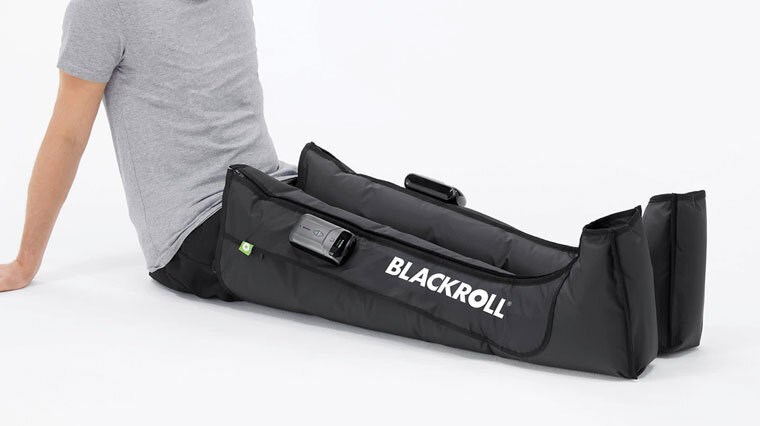
Recovery is an essential part of your training, and that includes committing to rest days. Taking a rest day, even before you feel burned out, helps you stay on track of your performance.
What does a rest day look like? That really depends on you, including your training load versus your fitness and how you feel in the moment.
Runners may benefit from incorporating gentle cross-training into their rest days. Specifically, these exercises should take the focus off overworked muscles, and may include stretches, light cycling, resistance band exercises, foam rolling, yoga, gentle dancing and walking. These low-intensity exercises can help support your mental wellbeing through movement and increase blood flow which aids muscle repair.
Alternatively, you may feel you need a day of complete rest - and that's OK. This will give you an opportunity to do relaxing activities that support your self-care, like catching up with friends, hobbies such as gardening, reading, painting and baking, or simply watching your favourite shows if it helps you to de-stress and cultivate positivity.
Incorporating a professional massage into your rest day can be rejuvenating for your body and mind. If you prefer to have the benefits of a massage always accessible, consider adding a Blackroll Massage Gun or Blackroll Compression Recovery Boots to your recovery kit.
Don't hesitate to throw an unplanned rest day into your running plan if you feel your mind or body is craving downtime. If you've read this blog and are confident you're overtraining, consider taking at least 3 rest days in a row to support your recovery.
If you run regularly, taking a break from running for even 1 - 2 weeks is unlikely to result in any significant declines in performance, and is likely to have a positive effect on your physical fitness and mental health in the long run.
Please note: Although these solutions may help alleviate the symptoms of overtraining, prevention is always better than cure.
Check out How To Measure & Increase Training Load For Runners to help you progress in your fitness and running journey, without getting to the point of overtraining.
Happy running and recovery!

